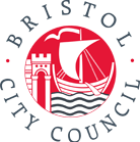Avoiding Hospital Admissions HIT achievements for 2016-17
Professor Sarah Purdy and Dr Peter Goyder, Directors of the Integration to Avoid Hospital Admissions Health Integration Team (ITHAcA HIT), give an update on the HIT's activities in 2016-17.
- 16th May 2017
Professor Sarah Purdy and Dr Peter Goyder, Directors of the Integration to Avoid Hospital Admissions Health Integration Team (ITHAcA HIT), give an update on the HIT’s activities in 2016-17.
This year we have focused on supporting implementing our project findings into practice and investigating research questions in line with commissioning priorities.
We held two discussion working groups (DWGs) to look at findings from our work to develop a tool to measure when an admission has been avoided and the use of a frailty toolkit in primary care. We conducted both projects in collaboration with Bristol, North Somerset and South Gloucestershire Clinical Commissioning Groups (CCG). The CCGs are supporting this work from conception through to implementation into practice.
We have collaborated with the Child Injury (CIPIC) HIT to explore the potential for first-aid education to support the public’s decision-making when seeking urgent care. This work will be published by the British Red Cross, who also funded it, in spring 2017. We will be working with CIPIC, the British Red Cross, service providers and the CCGs to consider the local implications of our study.
The National Institute for Health Research Health Services and Delivery Research programme has funded us to explore efficient models of care for general practitioners working in or alongside emergency departments. This work is of national interest and involves four universities across the UK. It is led by Professor Jonathan Benger.
We have continued our work with the physics department at the University of Bristol, to look at developing a primary care device to rapidly detect antibiotic resistance in common bacteria. We obtained further funding for this project from the Engineering and Physical Sciences Research Council and Elizabeth Blackwell Institute.
The device has been tested successfully in the laboratory, so we are exploring potential industry partners through an ICURe award. We are hoping to secure more sustainable funding for this project to explore how patients feel about the device.
We have begun to explore working with industry partners to strengthen our knowledge mobilisation work-stream and broaden our outlook for the future. The Elizabeth Blackwell Institute is funding Dr Ben Davies to explore opportunities for future collaboration with the telecommunications industry, through a placement with British Telecom. This will support our growing knowledge mobilisation strategy to ensure that we are engaging with organisations outside academia to foster collaborations and share knowledge and learning.






